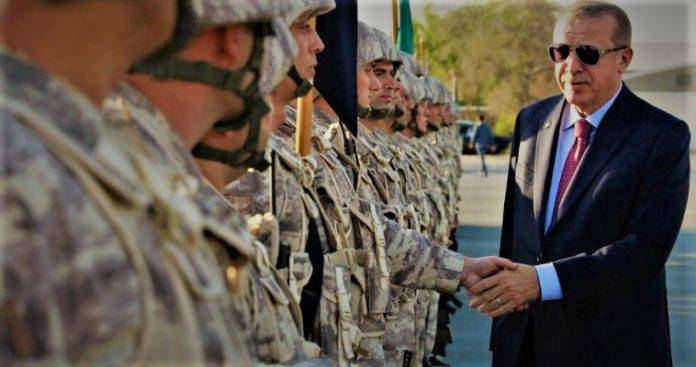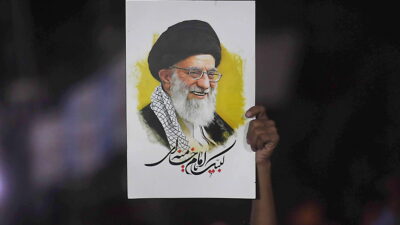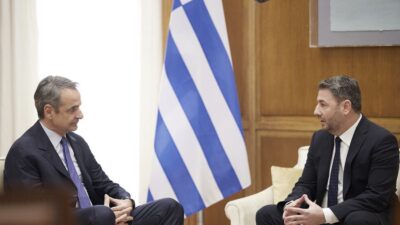Stavros Lygeros: Erdogan’s fatal move that broke the camel’s back
07/11/2020
It is a common mistake to see Greek-Turkish relations almost cut off from the geopolitical context in which they actually belong. This error is mainly due to inertia. For decades this framework has been stable with insignificant fluctuations. Today, however, it is in a phase of change.
The West, which had the decisive say in our region, has traditionally maintained a balanced relationship with Greece and Turkey for two reasons: First, Turkey is a larger country and because of its geographical location more important than Greece for the Western security system. Second, because of its imperial past, Turkey has always been more autonomous than the United States and therefore more demanding and more respected as an ally.
What the West was interested in after the war was that the Greek-Turkish conflict would not lead to a military conflict, which would in fact demolish NATO’s southeastern wing. Thus, in order to defuse the occasional tensions, Washington, as a rule, exerted more pressure on Athens, in order to force it to make greater concessions.
This has been the case for decades and, in general, European forces have been moving in the same direction as the United States, even though Greece has been a member of the EU for 40 years. The doctrine of an unbalanced (in favor of Turkey) relationship had deeply permeated both NATO and the foreign policy and defense mechanisms of the individual Western states. Many careers were built on the doctrine that Turkey is irreplaceable for the West.
The Erdogan agenda
Things gradually began to change when Erdogan won the civil war against the deep post-Kemalist state and began to unfold his political agenda. That is when he launched his neo-Ottoman strategy with the aim of turning Turkey into a Western autonomous regional power with a leading role in the Muslim world.
Erdogan’s campaign against the Gulen network after 2013 was in fact a campaign against US networks of influence in Turkey. Thus we came to the failed coup, which the Turkish president indirectly but clearly denounces as American-driven. Despite his often inflammatory rhetoric against the United States, Erdogan enjoyed some kind of immunity during the Trump presidency. This was clear with the purchase of the Russian S-400 missiles, which under normal circumstances would be a casus belli for the Americans.
The truth is that in the wider Washington environment, the prevailing view was that they should not take drastic measures against Erdogan in order not to force him completely into the arms of Russia. On the other hand, American policy began to change slowly. Criticism of Turkey increased and intensified, while positions of support for Greece and the Republic of Cyprus began to appear.
The American vacuum, the “Blue Homeland,” and France
The partial withdrawal of the Americans from the Mediterranean created a gap, which Turkey tried to fill with the doctrine of the “Blue Homeland”. As long as this was directed against the Republic of Cyprus and Greece, the reactions from other states were mainly rhetorical. However, when Turkey actively intervened in Libya, the anti-Turkish climate intensified.
The French believe that they are entitled to be the ones to fill the gap left by the Americans in the Mediterranean and they are certainly categorically opposed to the gap being filled by Turkey. That is why in recent years, in parallel with Total’s interest in the region, they have made openings to both the Republic of Cyprus and Greece. Even the traditionally rather pro-Turkish Italy was worried.
For the Sisi regime, the Turkish intervention in Libya in favor of the Tripoli government poses an existential threat, because of the Muslim Brotherhood. The same goes for the UAE and Saudi Arabia. At the same time, it has heightened Israel’s concerns. In other words, the pre-existing climate in the region intensified and led to tripartite cooperative schemes (Greece-Cyprus-Israel and Greece-Cyprus-Egypt) with the blessings of both the US and France.
The climate of the relative isolation of Turkey did not prevent Erdogan from getting involved in the Libyan front and later opening the front in the Caucasus. His determination to use the military tool, and not just words, has given him a regular advantage all along. With their expansive arbitrariness, the Turks have caused – more or less – concern and dissatisfaction in the West and local forces, but neither the affected (Greeks) nor the concerned third parties were willing to use military means to stop Turkey.
The over-expansion and bombing of Al Watiya
As long as the other players were stuck at the diplomatic level, because they are afraid (Greece), or because their interests are not directly affected (Israel, Egypt, USA, France), Erdogan was gaining points and creating faits accomplis. Regular victories not only gave him an advantage but also fueled his arrogance. Therefore, he showed that he did not know when and where to stop.
He has essentially fallen into the trap of “over-expansion”, which is a recipe for strategic defeat. Why? Because it was a given that at some point the other players will be forced by conditions to stop the “bully”. In other words, they will be forced to use the means used by Erdogan with very unpleasant results for Turkey.
That was what happened in Libya. There, things changed when “unidentified” planes bombed the Turkish base in Al Watiya in the western part of the country. After the catastrophic bombing, Erdogan retreated silently, abandoning the idea of attacking Sirte, as he had prepared and announced. This is because for the first time they answered him in the way he understands.
Turkey does not only seek to seize any energy wealth of the Republic of Cyprus and Greece. At the same time, it seeks to consolidate the “Blue Homeland”, that is, to transform the heart of the Eastern Mediterranean into a “Turkish lake”. This is not in the interests of the other Mediterranean powers and that is why a climate of the relative isolation of Turkey has been created.
Things have come to a head
In this climate, Greece has been called upon all the time to face the escalating Turkish aggression. Its deterrent strategy has been undermined by Athens itself, with the result that it has been to a large extent canceled. Hence, Turkey has dared to conduct research with Oruc Reis right outside the territorial waters of Kastellorizo. Hence, we will probably soon see Turkish drilling in the potentially Greek EEZ.
It is obvious that Erdogan is constantly raising the level of provocation, blackmailing Athens into accepting the increasingly serious faits accomplis (he estimates that this is more likely), or react by military means. In this case, which Ankara does not unjustifiably consider an unlikely scenario, the Turkish president seems determined to provoke a hot incident in the time and place that will suit Turkey. He is, after all, convinced that Greece is not going to enter into a generalized war, which would be catastrophic for both countries.
Greece has no reason to play Erdogan’s game. On the other hand, however, it can not tolerate for a long time such violations of its sovereign rights, which, in fact, are constantly escalating. That is why even before things come to a head, it must use time in a way to raise a barrier to Turkish offensive moves. On this crucial issue, however, on how it can be done, we will speak in detail in the next article.





